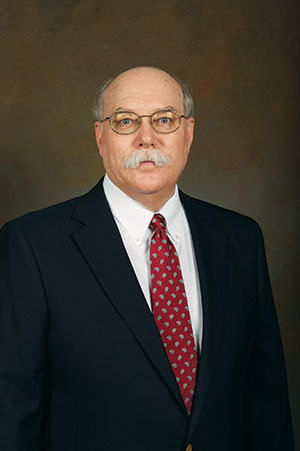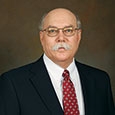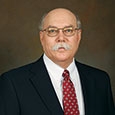“Once early in my career, I mentioned to a father that his son had told me that he worked in construction and stated that I would appreciate his advice sometime on our instrument storage room. . . . He informed me that he would be happy to replace all the cabinets and cubicles if I could provide some student labor to assist him, and he even had a better idea on how to arrange them.”

Never Underestimate the Telephone
A telephone call is much more effective than email. I have directed three programs during my career – two high school band programs and a college athletic band program. In all three cases, I was hired to rebuild the program. The enrollment problems at the two high schools were largely because of a high upperclassman dropout rate. Students were not truly committed to the programs. It was evident that the priority in addressing this problem was to build a relationship with students and their parents.
Upon being hired, I began by calling each student and introducing myself. After talking with the student I always asked to speak to the parents. After the first year of leading each program, I continued this practice but focused my efforts on potential new members. With the high school bands, I called eighth graders and their parents at the end of their eighth grade year, and with the college band, I called the homes of every high school student who indicated an interest in the band program. This took several evenings over the course of a few weeks, but the results were well worth the effort. It is important to understand that you are recruiting parents as well as students, much like college coaches do when they recruit athletes. I have occasionally had athletes in my classes here at Clemson, and I have always been fascinated to hear details about how they were recruited. They usually have one thing in common regarding their decision to attend Clemson University – their parents liked Clemson as well.
Take Advantage of Conferences
I have known music educators who dreaded parent-teacher conferences, but I always embraced them, because they are the most effective way to develop good working relationships with parents. I often expanded the school’s designated parent-teacher conference day schedule, knowing that all of the parents I hoped to talk to would not be able to meet with me in one day or evening. I added evenings and often a Saturday or two. Because band participation was a year-round activity, I even scheduled conferences in the summer. I also considered the nature of the community when creating a conference schedule. For example, my first job was at a high school in a mostly rural community with several family farms, so I avoided scheduling conferences during weeks when crops were being harvested. To encounter as many parents as possible, choose times that are convenient for them.
Although I found in-school parent-teacher conferences to be the most effective way to forge a good relationship, there were a few times when special circumstances required me to have a conference at a student’s home. On one occasion, I learned that an incoming freshman band member was being raised by his elderly grandparents, who were both in poor health and rarely able to leave their house. It was obvious that this student could have difficulties being a member of the high school band given the schedule of rehearsals and performances outside of the school day. I called the grandparents, who were impressed that someone from the school had reached out to them and delighted to learn that I was willing to stop by their house to talk with them about their grandson’s continued band participation. The middle school director joined me on the visit, and our discussion resulted in a plan that involved assistance from a neighbor and another band parent who lived nearby to provide transportation for the boy to and from band activities.
Preparation
Because you are going to use these conferences to highlight a child’s strengths, share thoughts about personal and musical development, discuss any concerns, and offer suggestions for improvement, consider keeping a file on each member of your ensemble with notes about their participation as well as notes about any previous parent encounters. I routinely referred to this file when talking with parents, and they were usually impressed with my organizational skills and concern for their child as an individual, rather than as just another member of the ensemble.
Another part of the conference preparation involves finding out more about the parents. The majority of your students may come from environments with a parent or parents in the home, but there are always those who do not. As it did with the above student’s elderly grandparents, it may take more effort to make a meaningful connection in these cases. Be mindful that your students, regardless of situations in the home, will be the beneficiaries of your efforts to increase engagement.
Directors often give students forms to fill out at the beginning of the school year. In addition to the usual emergency contact information, my form also included an optional section for parents or guardians to list their music experiences, professions, special skills, and hobbies. The intent of gathering this type of information was so parents could be contacted if I needed their expertise or advice in certain areas. If any information was incomplete, I routinely contacted high school guidance counselors to see if they could provide further details about the parents.
This information also provided valuable conversation material during the conference and was especially useful in breaking the ice with a reluctant parent. I learned early in my career that showing interest in parents and what they did helped them view me as a person with interest and knowledge beyond music and academia. I can recall many conferences with parents that involved discussions about farming, nursing, carpentry, car repair, banking, plumbing, motorcycle racing, and professional sports. One discussion even resulted in an invitation to go skydiving, although I was not brave enough to try.
Once early in my career, I mentioned to a father that his son had told me that he worked in construction and stated that I would appreciate his advice sometime on our instrument storage room. The wooden storage cubicles and closets were in poor condition. I had priced new cabinets from a manufacturer but the cost was prohibitive. He insisted on taking a look at the room as he left the meeting and asked if he could stop by the following day. When he returned he informed me that he would be happy to replace all the cabinets and cubicles if I could provide some student labor to assist him, and he even had a better idea on how to arrange them. He also informed me that there was another parent who laid carpet and yet another who was a painter. Soon our music program had completely remodeled instrument storage areas far better then anything we could have purchased, and the expense was simply the cost of the some of the materials. All the labor was either donated or provided by band students.
On Conference Day
Once the conference schedule is in place, it is time to focus on creating a professional-looking space to conduct the meetings. Take pride in the appearance of your office. I routinely had numerous strategically placed pictures and mementos designed to be conversation starters for parents and students alike.
Because the rehearsal room would be a waiting room for parents prior to their conference, I usually had recordings or videos of band performances playing to help create the proper mood. When it was time for the parents’ conference, I would come into the room and greet them by name with a smile and a firm handshake.
Parents may initially come into a conference with reluctance or even suspicion, in part because their impression of you is largely based on their child’s opinion. If students view you as mean-spirited, expect difficulties when engaging parents. If students describe you as a teacher who not only has high expectations concerning music performance and discipline, but also as a person who is kind, caring, and encouraging, then a good connection with parents is likely. Parents routinely seek relationships with individuals who engage their children in respectful ways and are capable of providing mentorship.
Although parents might enter the meeting with a preconceived notion of who you are, directors should avoid doing likewise. Approach these meetings with an open mind and view them as an opportunity to show parents that you are committed to helping students reach their full potential in music and beyond, as well as to make it clear that your hope is that they will be your partner in these efforts.
How to Talk to Parents
Begin the conference by telling parents how much of a pleasure it is to meet them and thank them for taking the time to visit with you, as well as for allowing their child to be a part of the instrumental program. Eye contact is a must throughout the meeting, from the moment you shake their hands to the moment they depart, as eye contact conveys sincerity and helps build trust. Always begin with positive statements about their child’s progress and participation in the music program before sharing any suggestions you may have for improvement.
While most directors would agree that the vast majority of their students should practice more, it is best to avoid simply saying “practice more,” as this is as vague and uninformative as a teacher in another academic area saying “study harder.” An effective way to convey that message is to cite how impressed you are with the student’s progress to date, and offer comments about how you believe the student has the potential to become a fine player with some extra work.
Leave openings in the discussion for parents to offer comments or ask questions. In my experience, parents were often excited to hear sincere comments about their child’s potential as a musician, and on most occasions when I framed the discussion properly, it was the parents who would comment that they needed to encourage their child to practice more.
Use a similar approach when addressing any behavioral or social concerns, citing how students’ potential is being affected by their actions. I often began discussions in this area with the phrase “are you aware,” as parents were usually unaware. They appreciated learning that their child’s behavior was hurting them or the other students rather than simply aggravating me. More often than not, parents offered comments about how they would assist in solving any problems. For example, I had students who knew that my instruction from their parents was to call them immediately if their child misbehaved, and then hand the child the phone. On the few occasions that I had to do this, the problem was solved quickly, and it rarely happened again.
Although the intent of these meetings is to talk about a child’s music participation, discuss the child’s future as well. The vast majority of your students will not pursue careers in music, so make yourself an advocate and supporter of their diverse career aspirations. I always had an idea of what my students hoped to do as adults and told parents that I could see them being successful in that endeavor based on the work ethic they routinely demonstrated as a part of the music program. Making connections between the benefits of continued ensemble participation and future career success is helpful as well.
I routinely ended a conference with a comment about how honored and excited I was to be a small part of their child’s development in preparation for adult lives and careers. In addition, I always stated my sincere appreciation concerning their child’s choice to participate in the music program, as well as my appreciation for the parents who were supportive of their choice. Ultimately, the goal of these conferences is for parents to leave the meeting with the opinion that you are a trusted ally and advocate for their child, and that they as parents are truly partners in their child’s music education and valuable members of the band family.
Following Up
Be sure to follow each parent-teacher conference with a thank you note. It is always appropriate to thank people for their acts of kindness, but it is also appropriate to thank parents for their willingness to meet with you. Although most people today would say that an email thank you is appropriate, there is nothing like receiving a handwritten note in the mail, as email messages are often overlooked. A note also works as a valuable visual reminder of you and your music program, as it may sit on a kitchen counter for a few days or even be posted on a kitchen bulletin board or refrigerator.
I always kept a stack of thank-you notes and stationery imprinted with our high school band logo in my office desk drawer, and I wrote a brief note to parents before I left school following the conferences. It took time to write these by hand, but I always believed that the long-term goodwill they produced was well worth the time it took to write them.
When writing thank you notes, consider using a “thank you plus at least two more things” strategy. Thank the parents for the opportunity to speak with them, express sincere appreciation for their support of their child’s participation in the music program, and tell them how you are looking forward to further opportunities to speak with them. It is also appropriate to personalize the note by commenting on some specific item that had been discussed in the meeting. Always put the thank you note in the mail the morning following the conference, so it is received in a timely fashion.
Parent Events
In addition to parent-teacher conferences, considering planning events that will give you an opportunity for continued parent engagement. Parent receptions after concerts or football games, music awards nights, and social events for parents such as fundraising dinners and dances are all activities that parents will enjoy. Also, consider programming a selection at a concert each year that allows parents with music experience to perform with your ensemble, and even explore forming a community band to give parents with music experience an opportunity to continue playing an instrument.
Parents of my students also enjoyed accompanying the band on trips, not just as chaperones, but as fans. Over the years my high school bands traveled to perform at a variety of events including The Indianapolis 500 Parade, The Kentucky Derby Parade, and The National Cherry Blossom Festival Parade, as well as Cincinnati Reds and Pittsburgh Pirates games. On these excursions there were often several busloads of parents who made the trip as well, and thanks to my efforts I knew them all by name.
Conclusion
The types of engagement previously described can be time consuming, but as a high school band director, I felt that it was important to build a larger, more engaged network of parent supporters. Over time, the combination of phone calls, in-person conferences, and parent group activities became a relatively easy endeavor to manage. For example, once the system was in place, all parents of incoming ninth graders became the focus of my phone calls and conferences. As a student progressed through the program, the conferences became viewed as annual check-ups, while the parent activities provided numerous opportunities for me to follow up with parents in a more informal and social environment.
The goal of building a good rapport is not simply about getting parents to do volunteer work. Dedicated, long-term support is the result of parents viewing a music educator as a genuine, caring person, as well as a welcome and trusted mentor to their children. The most noteworthy result of these relationships was that the more dedicated and supportive parents became, the more dedicated and focused their children became. In fact, in the high schools where I taught, student dropout rates decreased significantly, and on the rare occasion that a student left the program, it was never a case where a student just stopped showing up to rehearsal. The parents and their child usually requested a meeting with me to explain the situation. A final benefit of a strong parent-teacher relationship was that many parents continued to support the program after their child graduated. It was always wonderful to see these people and hear about former members in college or starting careers and families. It made the instrumental music program truly a family affair.






